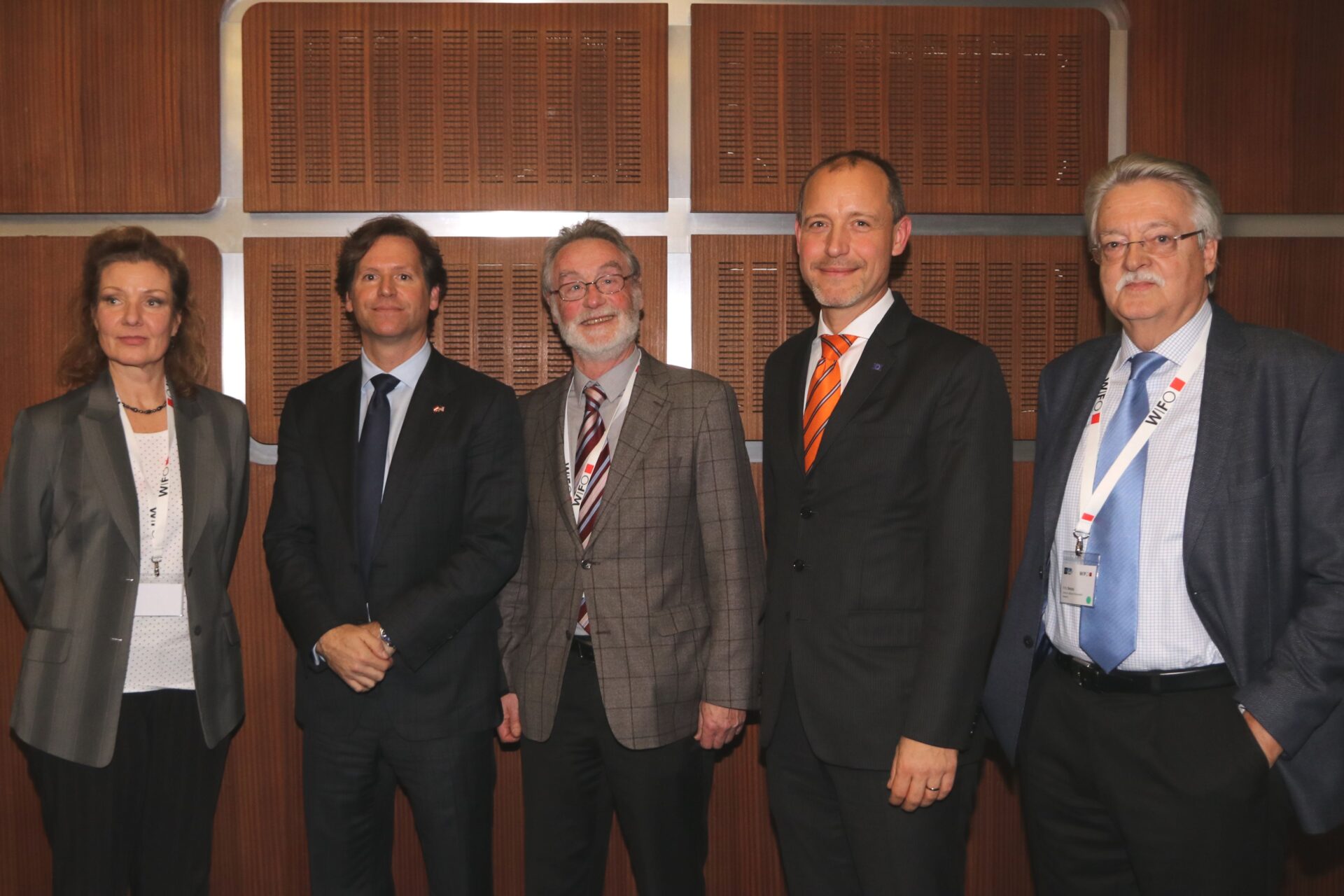
11th FIW Research Conference
In his keynote speech, Rolf J. Langhammer explained the importance of the WTO for global trade and emphasized in particular the structural and longstanding problems of the WTO. In his reading, President Trump's policy was the trigger, but by no means the cause of the current trade conflicts between the major players in world trade, China, the EU and the USA. The ensuing policy panel "Trade Policy in Times of Trump – Challenges for the EU" discussed current trade policy issues.
US Ambassador Traina stressed the positive trade relations between Austria and the USA. On the other hand, he pointed out that the position of the Trump Administration is not fundamentally different from previous administrations. The complaints about China's lack of openness and asymmetric tariffs had already been articulated by President Obama. What has changed most is the negotiating tactic. Ambassador Traina also stressed that trade tariffs are not a long-term goal of the US administration but are rather seen as a short-term instrument to persuade China and the EU to make concessions in trade policy.
Jörg Wojahn, representative of the EU Commission in Austria, shared the US complaints against China. On the other hand, one does not understand why a conflict with China affects trade relations between the USA and the EU. Wojahn also pointed out that although the EU estimates higher tariffs than the US in some areas, it is much more open than the US in other areas, in particular with regard to public procurement and trade in services.
Susanne Schrott of the Austrian Economic Chambers explained that trade with the USA is very important for Austrian companies. The Austrian companies are particularly concerned about the threat of sanctions for automobile trade. The trade conflict affects Austrian companies in three ways: direct customs duties, indirectly as suppliers of mainly German export products, and also through safeguards against trade diversions put into effect by third countries in reaction to US customs duties.
The second part of the discussion dealt with the future of the WTO. The panelists largely agreed that the WTO is indispensable as an essential component of multilateral governance of global trade. The question of how to achieve reforms within the WTO and, in particular, how to persuade China to move away from protectionist trade restrictions remained open.
Please contact
























